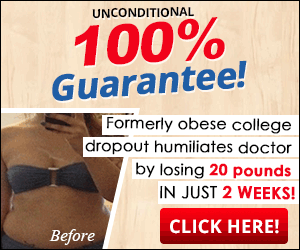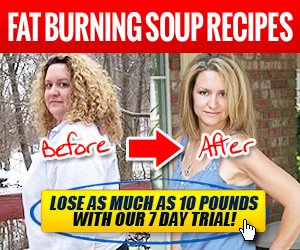The Truth About Quick Weight Loss and Fad Diets
What if the secret to weight loss was simpler than you thought? Have you ever found yourself caught in the whirlwind of quick-fix diets that promise astonishing results? You’re not alone. With the ever-increasing number of fad diets claiming to whisk away pounds overnight, it’s easy to become overwhelmed and confused about what genuinely works. The truth is, while the allure of rapid weight loss is tempting, most of these diets may not be your best option for long-term health and wellness. Let’s unveil the realities surrounding quick weight loss and fad diets together.
The Allure of Quick Weight Loss
Quick weight loss methods often promise astonishing results in a very short span. You might have seen advertisements boasting that you could lose an entire dress size in just a week! Sounds great, right? However, it’s essential to understand that these claims often come at a price. When you opt for rapid weight loss, you may be sacrificing not just your well-being but also setting yourself up for failure down the line.
The Psychology Behind Dieting
When you commit to a diet, your mental state plays a significant role in your success. The excitement of seeing immediate results can be addictive, almost like a rollercoaster ride—not for the faint of heart! But, as you may find, these short-lived successes can lead to feelings of deprivation, frustration, and even binge eating. It’s crucial to approach your weight loss journey with a mindset focused on moderation and balance, rather than drastic changes.
A Closer Look at Fad Diets
Fad diets have become notorious for their gimmicks and oversimplified solutions. From juice cleanses to the cabbage soup diet, you might have come across numerous dietary trends that promise quick results. The primary problem with these diets is that they often lack essential nutrients and fail to promote sustainable changes. While you might drop some weight initially, you’re likely to regain it once you return to your regular eating habits.
The Findings of the American Heart Association
The American Heart Association (AHA) has dedicated time to comparing quick weight loss methods with traditional, sustainable diets. This analysis can be invaluable for any serious dieter looking to make informed choices. What does the AHA say about these diets?
Fad Diets and Their Shortcomings
It turns out that many fad diets like the infamous cabbage soup diet can lead to various health issues. Although proponents rave about the weight you could lose, you may face physical discomfort, digestion problems, and nutritional deficiencies instead. The AHA does not endorse these quick-fix solutions; they stress the importance of nutrient-rich foods that offer vitamins, minerals, fiber, and other essential nutrients.
The Importance of Balance
Emphasizing a balanced approach to eating is crucial. The AHA recommends diets that allow flexibility in food selection rather than strict limitations. This balance is key in creating healthy habits that last rather than temporary fixes that can lead to a cyclical pattern of weight loss and regain.

This image is property of images.pexels.com.
The Role of Physical Activity
What is often overlooked in many fad diets is the importance of physical activity. You might find that many of these diets do not encourage a consistent exercise regimen, which is essential for overall health.
Integrating Exercise With Diet
The AHA suggests a simple yet effective approach—aim for at least 30 minutes of moderate physical activity most days of the week. This doesn’t mean you need to run a marathon; a brisk walk can significantly benefit your heart health and help maintain a healthy weight.
| Activity | Duration | Benefits |
|---|---|---|
| Walking | 30 minutes/day | Improves cardiovascular health |
| Yoga | 30-60 minutes/day | Enhances flexibility and reduces stress |
| Strength Training | 2-3 times/week | Builds muscle and boosts metabolism |
The Myths of Dieting
Many popular quick weight loss diets are based on obsolete myths rather than current scientific understanding. The idea that certain foods can “burn” fat or that food combinations can change your metabolism is simply not backed by credible research.
Debunking Common Myths
Here are some common dieting myths that you should ignore:
Fat-Burning Foods: There is no magic food that makes you lose weight overnight. It’s about the overall balance of your diet.
Food Combining: The concept that certain foods should never be eaten together for optimal digestion lacks scientific support.
Detox Diets: Your body is already equipped with a liver and kidneys that effectively detoxify without the need for extreme diets.

This image is property of images.pexels.com.
Creating Lasting Healthy Habits
The most effective way to lose weight sustainably involves creating healthy eating habits that you can maintain for life. Rather than ratcheting up extreme restrictions, focus on building a diet rich in whole foods—fruits, vegetables, whole grains, lean proteins, and healthy fats.
Educating Yourself on Nutrition
Taking the time to educate yourself on proper nutrition can be incredibly beneficial. The AHA provides numerous resources that can help you learn how to balance your meals and make healthier choices.
Key Components of a Healthy Diet:
- Fruits and Vegetables: Aim for a colorful variety to ensure you get a range of nutrients.
- Whole Grains: These are vital for your digestive health and energy levels.
- Lean Proteins: They help with muscle repair and making you feel fuller for longer.
- Healthy Fats: Sources like avocados, nuts, and olive oil can support heart health.
The Value of Support
Starting a weight loss journey can often feel isolating, but it doesn’t have to be. Finding a supportive community can make a world of difference.
Joining Support Groups
Consider joining support groups or engaging with friends and family in your dietary journey. Sharing your experiences can provide motivation and tips from others walking a similar path. Plus, it’s much easier to stay committed when you’re not doing it alone.

This image is property of images.pexels.com.
Conclusion: A Balanced Approach Wins
It’s easy to get lost in the whirlwind of quick-fix solutions, but the truth is that sustainable weight loss is a marathon, not a sprint. Embracing a balanced diet and incorporating regular physical activity will serve you far better in the long run. Avoid the traps of fad dieting and invest your time in habits that contribute to lasting health and well-being.
As you navigate your weight loss journey, consider what truly matters: your health. Choose a path that feels good for you, and remember, every step you make toward healthier habits is a step in the right direction.
In the end, it’s not just about losing weight; it’s about bridging the gap between seeing your true self reflected on the outside and feeling good on the inside. So, what will your next step be?








